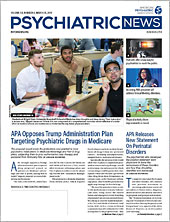The Trump administration has proposed a controversial plan aimed at lowering prescription drug prices that would put an end to the practice of drugmakers giving rebates to certain health plans and their pharmacy benefit managers (PBMs).
The rule would affect enrollees in Medicare Part D drug plans and lower-income individuals enrolled in Medicaid managed care plans. If finalized as expected next year, the rule would raise monthly premiums in Medicare Part D drug plans by as much as 22 percent but would provide uncertain benefits at the pharmacy counter. Analysts say the plan would likely trickle down to the rest of the health insurance marketplace.
The proposed rule would legally bar rebates that drug manufacturers now pay to health plan sponsors—and the PBMs under contract with them—driving a certain volume of sales or providing a certain market share. The rebates are based on the list price of drugs, so when prices go up, the rebates are larger.
These arrangements may create a perverse incentive for drugmakers to raise their list prices—and for plans to favor these more expensive drugs—to obtain higher rebate payments, according to the proposed rule, published by the Department of Health and Human Services in the February 6 Federal Register.
Drug companies announced large list price increases for 2019, by one analysis, about 6 percent per drug, according to the proposed rule. However, these price increases are not supported by inflation, increased costs of goods, or increased demand, but they instead “reflect significant distortions in the distribution chain.” Nearly every drug company reporting a price increase in January said that most or all of the increase reflected the cost of rebates being paid to health plans or their PBMs, according to a fact sheet issued by the administration.
Under the current system, patients pay a share of their medication cost based on the list price of the drug at the point of sale. The health plans or their PBMs later receive rebates on those medications, but that discount is not passed along to patients.
The proposed rule would end the safe harbor arrangement that shields drugmakers paying these discounts from anti-kickback statutes. The proposed rule would also establish a new safe harbor for drugmakers that choose to give rebates directly to consumers at the point of sale.
“There is tremendous uncertainty about how this rule would work and how it would affect beneficiaries in terms of out-of-pocket costs and program spending,” said Juliette Cubanski, Ph.D., M.P.H., M.P.P., associate director of the Program on Medicare Policy at the Kaiser Family Foundation. “This is a bold experiment, but it’s also a very risky experiment in terms of the potential impact on the prescription drug marketplace. What’s unequivocal is that everyone enrolled would see an increase in premiums.”
An analysis by Milliman of the potential impact of the proposal commissioned by the administration projects premium increases of 12 percent to 22 percent per member per month. Cubanski pointed out that the proposed rule provides no guarantee that drugmakers will choose to lower list prices or provide rebates to consumers, although all patients across the board will see their premiums go up.
Regardless, not all patients take rebate-eligible medications, which are typically reserved for expensive brand-name drugs that have several competing medications, Cubanski pointed out. Under the Medicare Part D plan, antidepressants, antipsychotics, and anticonvulsants are part of the so-called “protected classes” drugs for which plans are required to cover all or substantially all of them. As a result, rebates for these drugs for psychiatric conditions tend to be lower, if they are offered at all.
The drug rebate system is somewhat of a mystery, since discount arrangements for specific drugs are considered proprietary information that drugmakers are not required to disclose.
“There’s some level of uncertainty as to whether patients would see any savings if you take away rebates for plans,” Cubanski concluded. “Because the rule does not change drugmakers’ fundamental ability to set list prices wherever they want them.”
APA has been advocating to make prescription drugs affordable and accessible to those who need them and is reviewing the proposal, along with a coalition of medical organizations, and will be filing comments by the April 8 deadline.
Stephen J. Ubl, president and CEO of Pharmaceutical Research and Manufacturers of America (PhRMA), applauded the administration’s proposal and said these types of reforms will especially help patients with chronic diseases who are often not benefitting from the current rebate system.
“We need to ensure that the $150 billion in negotiated rebates and discounts are used to lower costs for patients at the pharmacy,” he added. ■
Comments on the proposed rule, “Fraud and Abuse; Removal of Safe Harbor Protection for Rebates Involving Prescription Pharmaceuticals and Creation of New Safe Harbor Protection for Certain Point-of-Sale Reductions in Price on Prescription Pharmaceuticals and Certain Pharmacy Benefit Manager Service Fees (42 CFR 1001)” may be submitted
here.

